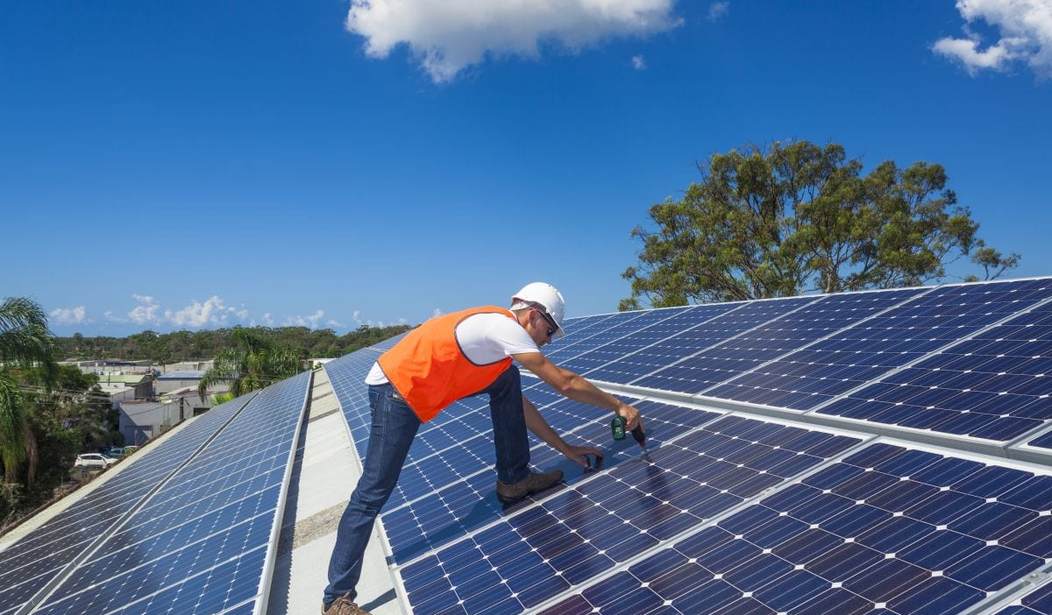Representatives from 195 countries are poring over a draft agreement that would phase out fossil fuels over the next several decades and transfer trillions of dollars to poor countries to help them deal with climate change, thus saving the planet, the oceans, the polar ice caps, the polar bears, and the legacy of President Barack Obama.
That’s their story and they’re sticking to it.
The reality is far more prosaic. Instead of mandated caps on emissions and penalties for not meeting CO2 goals, there are solemn promises that the emissions targets set forth in the document for each country will be met.
If that sounds like a load of hornswoggle to you, you’re right.
The agreement that will almost certainly be approved in the next day or two is an exercise in narcissistic self congratulations. Each leader will be able to go home, point to something or other in the document, and proclaim that they have saved the planet.
The irony is, even if the planet needs saving, the most hysterical climate-change zealots are saying it’s not enough.
Some highlights from the deal via Reuters:
–Holding the increase in the global average temperature to well below 2 °C above pre-industrial levels and to pursue efforts to limit the temperature increase to 1.5 °C above pre-industrial levels, recognizing that this would significantly reduce the risks and impacts of climate change;
— Parties aim to reach global peaking of greenhouse gas emissions as soon as possible, recognizing that peaking will take longer for developing country Parties, and to undertake rapid reductions thereafter in accordance with best available science, so as to achieve a balance between anthropogenic emissions by sources and removals by sinks of greenhouse gases in the second half of this century, on the basis of equity, and in the context of sustainable development and efforts to eradicate poverty.
— Prior to 2025 the Conference of the Parties serving as the meeting of the Parties to the Paris Agreement shall set a new collective quantified goal from a floor of 100 billion dollars per year, taking into account the needs and priorities of developing countries.
There was much talk of “not failing our children” and dire threats of catastrophe if they didn’t approve this meaningless agreement:
Our responsibility to history is immense,” Fabius told thousands of officials, including President Francois Hollande and U.S. Secretary of State John Kerry, in the main hall of the conference venue on the outskirts of Paris.
“If we were to fail, how could we rebuild this hope?” he asked. “Our children would not understand or forgive us.”
Barring any last-minute objections as negotiators pore over the final text, they will reconvene at around 1545 local time (9.45 a.m. EST) to approve the agreement, a major breakthrough in global efforts to avert the potentially disastrous consequences of an overheated planet.
Calling it an “ambitious and balanced” agreement, Fabius said it would mark a “historic turning point” for the world.
Prior to the session, China’s top negotiator Gao Feng said there “there is hope today” for a final pact, while Marshall Islands Foreign Minister Tony De Brum told Reuters: “I think we’re done here.” Leaving the midday session, Secretary Kerry said an agreement seemed to be “teed up”.
One thing that makes this deal a parody of statesmanship is that China gets to continue emitting CO2 as fast as it can burn its dirty coal until 2030, at which point they are supposed to “cap” their emissions and start to bring them down. Meanwhile, there is an immediate cap for all the rest of the industrialized powers, giving China an enormous economic advantage. While the West is busy slowing its economies and punishing energy producers, China can — and will — build coal-fired electric plants at the rate of about 1 every 10 days for the next 10 years.
China’s legions of apologists point out that they are also adding wind and solar power at a faster rate than any western country. That’s very true — an advantage in a command economy. But for electric-power generation on a mass scale, the Chinese will still rely on coal. However fast western countries reduce their CO2 emissions from fossil fuels, China will make up the slack. CO2 emissions worldwide will not be reduced by one single molecule.
The deal is not a treaty and wouldn’t pass Congress if it was. The next president is going to have to decide whether to abide by its strictures — including donating billions of dollars a year to a “Green Climate Fund” — or not.










Join the conversation as a VIP Member